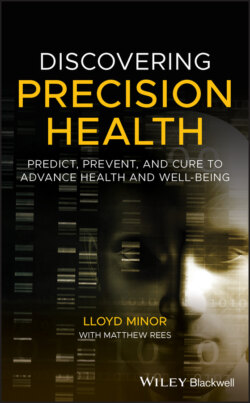Читать книгу Discovering Precision Health - Lloyd Minor - Страница 23
THE U.S. HEALTH CARE CONUNDRUM
ОглавлениеHealth care is one of the most debated subjects in the United States. Consider the passionate feelings about the Affordable Care Act—better known as Obamacare—and whether to preserve it, reform it, or repeal it. What’s striking about U.S. public opinion related to health care is not the divide between Republicans and Democrats but rather the differences in how people feel about the care they receive versus the system that provides that care.
In November 2017, the Gallup organization asked more than 1,000 people to rate the quality of care that they received, and 77 percent said it was “excellent” or “good.” There’s been little fluctuation in that number dating back to 2001 [17]. But when people were asked to describe the state of the U.S. health care system, 71 percent said it was “in a state of crisis”—a sentiment that has not changed much since 2008 [18].
Although I will emphasize health care in later chapters, I want to focus here on the health care system and touch on some of the features that people find unsatisfactory. I am certainly familiar with the system’s inadequacies and will start with something that reflects those inadequacies: how it has been insulated from the technology disruptions that have shaken up countless other industries.
One way to gauge the slow pace of innovation in how the health care system operates is the absence of any game‐changing products or companies akin to, say, Google, Uber, Airbnb, Amazon, etc. I certainly recognize the obstacles to disruption, such as extremely complex billing systems, restrictive government regulations, and the high stakes associated with any innovation that involves the care and treatment of human lives. Nonetheless, the effect is striking: how health care is delivered, and the environments in which medicine is practiced, have not changed much since I graduated from medical school in 1982. Yes, there have been some modifications, such as the adoption of electronic health records (which have brought their own set of issues, as I describe below), but the foundation of the system remains the same. That’s problematic for everyone involved, but primarily for patients and the health care professionals who serve them.
